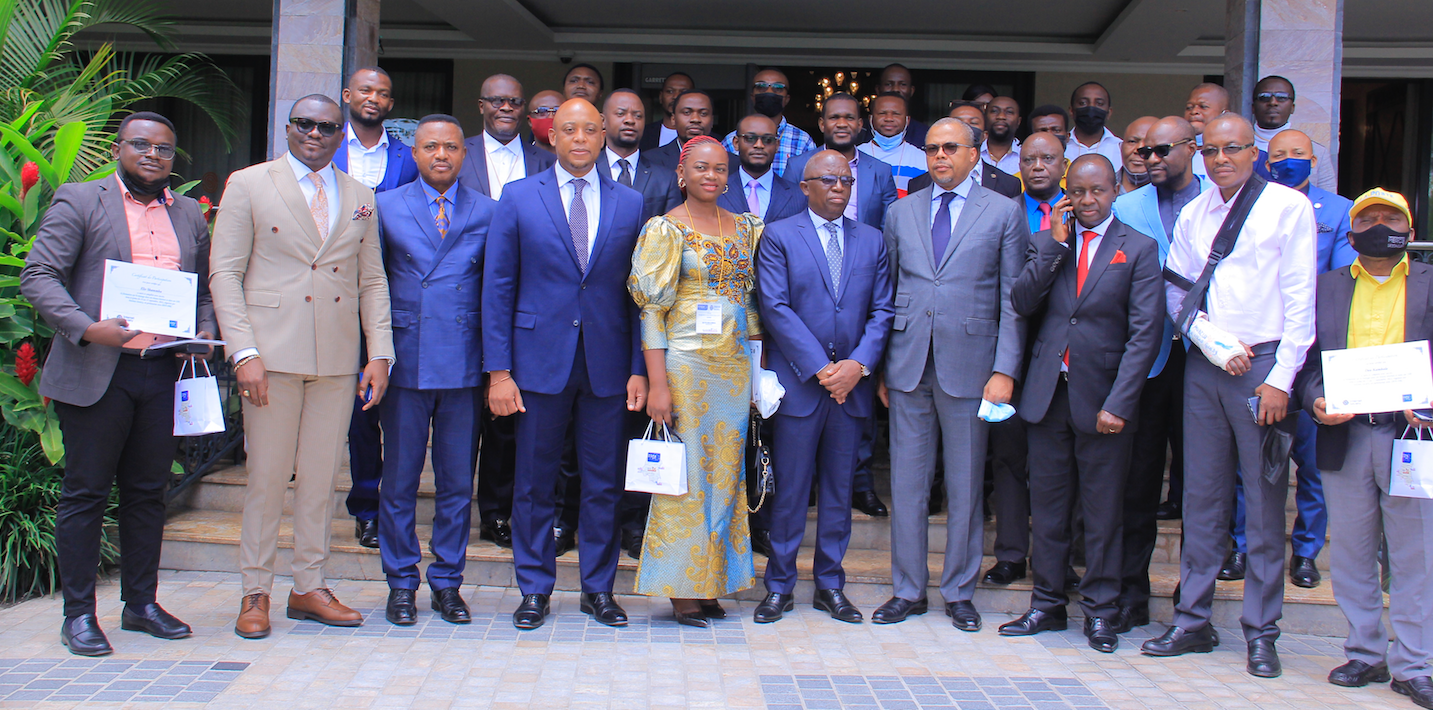GOMIX, the Democratic Republic of Congo’s third Internet Exchange Point, launched in Goma, the main capital of the North Kivu province in the east of the DRC, in September 2021.
Initiated by the Internet Service Provider Association (ISPA-DRC) in partnership with the Internet Society, GOMIX will improve Internet access for nearly 4 million urban residents. It will also facilitate creating local content, hosting services at a local and national level, and promoting interconnection between local Internet Service Providers (ISPs).
GOMIX is the third Internet Exchange Point (IXP) in the country, joining KINIX in Kinshasa and LUBIX in Lubumbashi, and is part of DRC-IX, the country’s national Internet Exchange Point (IXP) development initiative. DRC-IX started in 2012 and aims to keep local traffic local and to develop local, national, and regional Internet infrastructure in order to reduce the cost of accessing the Internet and improve the quality of service.
GOMIX will mean network operators such as ISPs, financial institutions, content providers and enterprises will be able to interconnect locally. To further strengthen its sustainability and posterity, ISPA-DRC will work with local experts to establish a network operator group (NOG), providing technical training for new organizations connecting to the IXP.
Quicker, cheaper, and more reliable Internet access
Laurent Ntumba, President of ISPA-DRC, said the new IXP “will play a major role in enabling the exchange of Internet traffic and help bring faster, more reliable Internet access to the eastern part of the DRC.”
Stressing the commitment of the state to facilitate the implementation of Internet infrastructure across the country, Ntumba said that “thanks to collaborative efforts, the DRC has succeeded in establishing three exchange points thus far, which will play a greater role in supporting the country to boost connectivity.”
He added that the government is committed to supporting IXP initiatives in the country because it will boost local traffic and reduce cost of access for users.
Ntumba joined 100 people – including 50 online and 50 in person – at GOMIX’s launch in September. Some attendees were ISPA members who completed their training in Internet routing and IXPs during the event, including Jean de Dieu Konzo, technical manager at Vodacom. He said that GOMIX would greatly benefit the population of Eastern Congo. “It will improve the quality of Internet services, through traffic exchange at the local exchange point and reduce the cost for operators,” he said.
The cost of operating an IXP is shared among members who pay a single registration fee and a monthly, quarterly, or annual operating fee for peering. ISPs providing more than 95% of the connectivity in the DRC have the opportunity to exchange their local traffic at each of the 3IXPs in the DRC. All this traffic will pass through DRC-IX, including more than 85% of the Congolese Internet users who will exchange their local content, create a technical environment conducive to local hosting, and grow the volume of locally created content.
“When more businesses join the digital space, it is beneficial to all. It also enables the state to stand behind the ISPs to support them,” said Christian Katende, who attended the launch event on behalf of the DRC’s regulatory authority ARPTC.
Working together to boost local economies
Tony Munongo, adviser to the Congolese Prime Minister, agreed, and said: “GOMIX is a clear demonstration of collaboration and how the government can work together with its partners to achieve a community project capable of boosting local economies.
“It is a great achievement that will improve the quality of internet service for all users, but also create opportunities for all service providers and content. Some of the infrastructure challenges faced by Internet operators in Eastern Congo will be addressed by GOMIX. It will enable content to load with much faster speed and will help the government to create an environment that will benefit everyone.”
For Munongo, the DRC’s network does not cover everyone, but initiatives such as GOMIX, KINIX and LUBIX can improve and optimize Internet connectivity and help bring more people online, which is one of the government’s key commitments.
ISPA-DRC believes that some taxes, like excise duty and the import tax on computing devices, are barriers to the development of the Internet in the Democratic Republic of Congo. It believes that state regulatory bodies could take positive actions, such as lowering taxes in the telecommunications sector to enable affordable access and connect even more people to the Internet.

